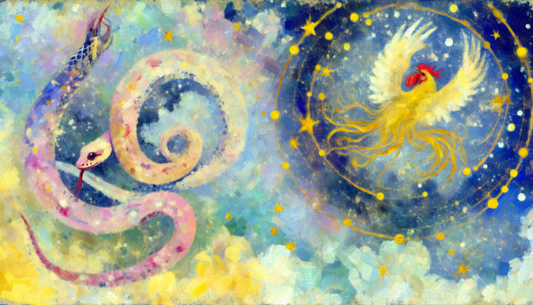Libra, the seventh sign of the zodiac, is represented by the scales, symbolizing balance, justice, and harmony. Those born under this sign are often seen as diplomatic, charming, and sociable. The mythology that surrounds Libra provides a deeper understanding of these traits and the celestial influences that shape its essence. Exploring the legends and origins behind this air sign unravels fascinating stories that reflect ancient beliefs and timeless lessons about balance and relationships.
The Origin of Libra in Astronomy

The zodiac sign Libra is derived from its constellation located in the southern sky. The ancient Greeks recognized the stars in this area as a representation of balance. The name "Libra" itself comes from Latin, meaning "scales," which they used to symbolize justice and fairness. Unlike other zodiac signs that are often depicted as living beings, Libra’s association with a non-living object highlights its emphasis on equilibrium and impartiality.
The constellation is home to the brightest star, Zubenelgenubi, which means "the southern claw." This fascinating connection to Scorpio reminds us that while Libra seeks balance and harmony, it also holds a deep understanding of the complexities of life and the struggles that can arise in pursuit of those ideals.
Goddess Themis: The Divine Symbol of Justice

In mythology, Libra is often associated with Themis, the Greek goddess of divine law and order. Themis was revered for her wisdom and her role in maintaining balance in the universe. Often depicted blindfolded and holding scales, she represents impartiality and the pursuit of justice. Themis is a symbol not only of legal fairness but also of the harmony that comes from understanding both sides of any situation.
Libra individuals often carry the traits associated with Themis - justice, fairness, and an innate ability to see various perspectives. They have a deep-seated desire to maintain peace and provide a sense of equilibrium in their relationships and social environments. These qualities stem from the rich mythology surrounding the sign and its divine connections.
The Balance Between Light and Darkness
While Libras are known for their social charm and sociability, their mythology also emphasizes the essential duality in life. The balance between light and darkness is a recurring theme in various cultures, and for Libras, this concept invites reflection on the importance of recognizing both aspects.
In many myths, Libra symbolizes the tensions of life, the weighing of choices, and the moral dilemmas that require deliberation. The ancient Egyptians viewed the heart as the seat of the soul, which was weighed against a feather in the afterlife to determine one's fate. Libras resonate with this notion of balance as they navigate personal and relational challenges, ensuring that neither light nor dark dominates their choices.
Libra’s journey is about understanding that to achieve true balance, one must acknowledge and integrate the shadows alongside the light. This reflection embodies the essence of Libra’s innate desire for harmony in all its forms - beauty, relationships, and the pursuit of justice.
Venus: The Guardian of Libra
The planet that governs Libra is Venus, the Roman goddess of love and beauty. Her influence enhances Libra's natural grace and charm. In mythology, Venus embodies the ideals of attraction, romance, and aesthetic enjoyment. This connection tells us much about what Libras seek in life: beauty, love, and harmonious experiences.
Venus represents the pursuit of pleasure and the appreciation for art and aesthetics, which are essential traits often observed in Libras. They have an innate sense of style and an appreciation for the beauty around them. This not only reflects their personal taste but also signifies their belief that the world can be a beautiful place when balanced and harmonious.
The influence of Venus also highlights the Libran penchant for love, partnership, and connections. Relationships play a significant role in their lives, and the desire for harmony often drives them to seek out mutually beneficial partnerships. It's not only about romantic relationships, as Libras value friendships and familial bonds equally.
The Role of Libra in the Zodiac Cycle
In the grand scheme of the zodiac, Libra serves as a crucial sign aligned with the themes of partnership and balance. After the fervent energy of Virgo, which emphasizes work and self-analysis, Libra invites us to consider the importance of collaboration and compromise. This astrological placement teaches us that relationships are foundational to our existence and that harmony often lies at the heart of our interactions.
Libra encourages us to find our identity within partnerships - be it romantic, platonic, or professional. The mythology of Libra invites us to explore how we relate to others and how we navigate challenges within our connections. It reminds us that personal growth often comes from how we interact with the world around us, and the balance we cultivate defines our experiences.
Conclusion: Embracing the Libra Spirit
The mythology of Libra is both rich and layered, inviting us to reflect on the ideals of justice, balance, love, and harmony. Through the lens of ancient tales and celestial influences, we come to appreciate the profound significance of this air sign. The legends surrounding Themis, Venus, and the weighty topics of moral balance resonate deeply with the traits often associated with Libras.
Whether you are a Libra or simply someone intrigued by the zodiac, embracing the spirit of Libra encourages us to live with fairness, seek beauty in the everyday, and nurture our relationships. Understanding the mythology of Libra reminds us that balance is not a destination but a continuous journey - a dance between the light and dark, between individuality and partnership, and ultimately, a reflection of our desire for a harmonious existence.














